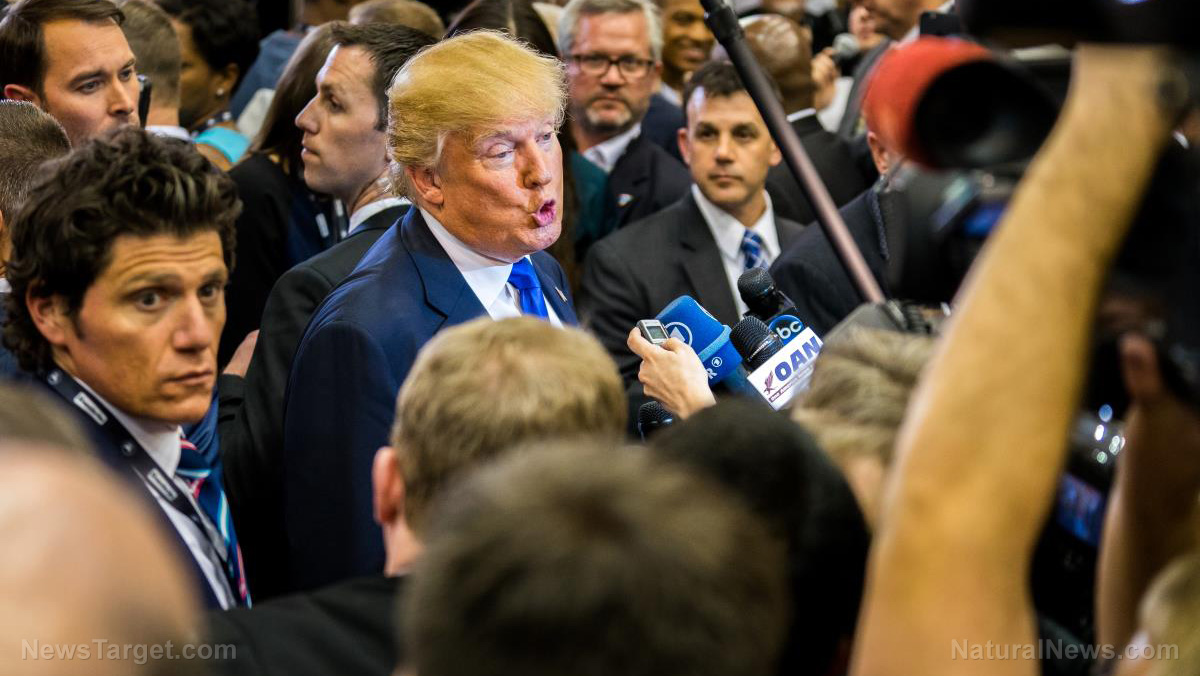
Advertisement
Since before he even took office, then-President-elect Donald J. Trump and his transition team were fending off one media broadside after another, attacks that only intensified once he took office Jan. 20.
Since then, the Trump White House has been regularly caught off-guard and flat-footed by a deluge of leaks — from the Deep State and, some say, from his own inner circle — concerning sensitive and, sometimes, classified information.
Two of the most recent examples, as The National Sentinel reported, came from The New York Times, which published highly classified information regarding the addition of a U.S. Navy ballistic missile submarine off the coast of the Korean peninsula and previously undisclosed information regarding the Manchester, England, terrorist suspect and the bombing itself.
The publication of classified information by the Times and other “mainstream” media should constitute treason, say a majority of Americans in a new survey by Rasmussen Reports. (Related: Read Washington Post Exposed As A CIA Front Propaganda Rag Working To Overthrow The Trump Administration And Install Political Puppets.)
“The latest Rasmussen Reports national telephone and online survey finds that just over half (53 percent) of all likely U.S. voters still consider the leaking of classified information to the media to be an act of treason. Thirty percent (30 percent) disagree, while 18 percent are undecided,” the firm announced on its website.
The latest figures pretty much represent how Americans said they felt in November 2010 after WikiLeaks published reams of top-secret information stolen from the U.S. government regarding the Afghanistan war and various foreign policy and defense-related issues. At that time, 72 percent of respondents said publishing the information harmed U.S. national security instead of providing a “need-to-know” public service, compared to 14 percent who believed the opposite.

And as you might expect, the issue of whether the media’s publication of sensitive information leaked to damage the Trump administration is treasonous or not is highly partisan: Rasmussen said that 73 percent of Republicans think so, while just half as many Democrats (36 percent) agree.
However, if you had to handicap the data you could say that Republicans’ view on the matter is more reflective of the country in general: Rasmussen also noted that by a 50-27 percent margin, “voters not affiliated with either major party” think the publication of secret data is treasonous.
Rasmussen noted further:
Partisan differences of opinion are even more obvious when voters are asked whether media outlets that release secret government information are providing a public service or hurting national security.
A plurality of those surveyed — 47 percent — do believe that publishing sensitive information hurts our ability to defend ourselves. That is down considerably from 72 percent six years ago, the polling firm reported. Today, 34 percent think publishing the data is a public service.
To again demonstrate the partisan nature of the issue, when Obama was in the White House in 2010, six-in-10 Democrats thought “the media was hurting national security by releasing secret government information, while 84 percent of Republicans and 72 percent of unaffiliated voters agreed.”
What does that tell us? That Republicans and unaffiliated voters more reliably see the media’s publication of secret information as harmful to the country, while Democrats — especially those in the Age of Trump and the fake “Russia collusion” story — tend to pick and choose when to be more outraged by such disclosures. (Related: Read WaPo screws up again, publishes fake news involving Trump son-in-law: Kushner DIDN’T request back channel to Russia.)
But the fact is, it shouldn’t matter who is in the White House and which party is in power; such disclosures by the media of classified data always hurt us and help our enemies, hence, are treasonous.
There are things the public has every right to know, and our founders adopted the First Amendment’s media protections for the very purpose of holding governments to account. But it’s not at all likely they would have supported the publishing of secret war plans, for example, against America’s enemies, nor would they have likely sanctioned the media’s decision to allow itself to be used by the Deep State to harm a duly elected president.
Read similar stories at Conservative.news.
J.D. Heyes is a senior writer for NaturalNews.com and NewsTarget.com, as well as editor of The National Sentinel.
Sources include:
Submit a correction >>
This article may contain statements that reflect the opinion of the author
Advertisement
Advertisements















